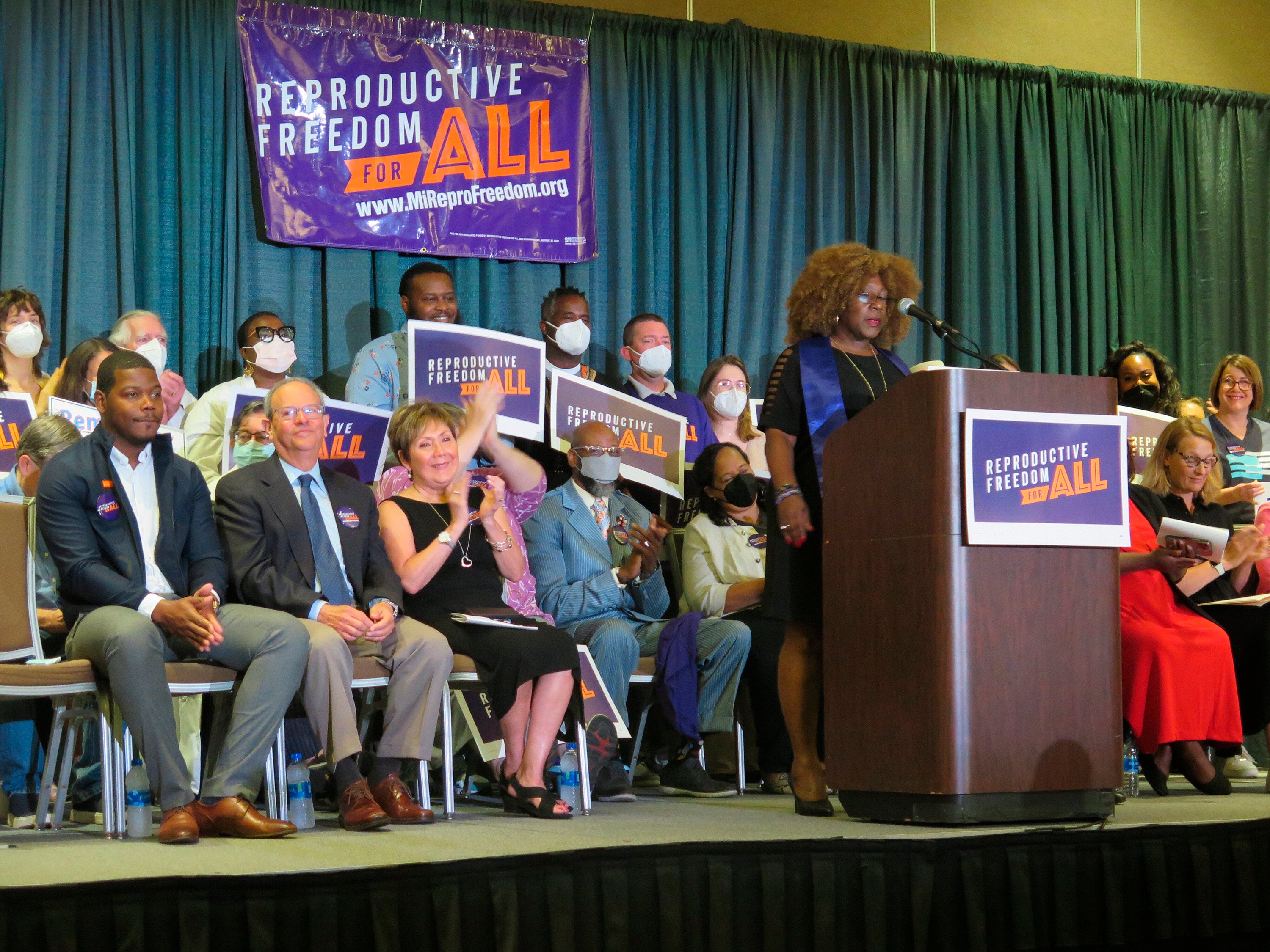Abortion rights poised to go before Michigan voters in fall
Abortion rights are poised to come before Michigan voters in November after an abortion rights campaign turned in a record-breaking number of signatures for a ballot initiative

Abortion rights are poised to come before Michigan voters in November after an abortion rights campaign turned in a record-breaking number of signatures Monday for a ballot initiative to the secretary of state’s office.
The effort will further increase attention on Michigan's elections, where the battleground state’s Democratic governor and attorney general have made abortion rights a centerpiece of their reelection campaigns.
The push to enshrine abortion rights in the state constitution comes weeks after the U.S. Supreme Court overturned Roe v. Wade and gave states the power to decide whether to ban the procedure. The ruling is expected to lead to abortion bans in roughly half the states.
Michigan is among several states with a pre-Roe abortion law that was set to take effect if Roe was overturned. However, a judge issued an injunction that temporarily blocked it. The 1931 law would make abortion a felony in all cases, except when “necessary to preserve the life of such woman.”
“The number of signatures showed that here in Michigan we trust women. We trust people. We trust doctors, not politicians, to make decisions about our body, our pregnancy and parenthood,” Reproductive Freedom for All spokesperson Shanay Watson-Whittaker said during a news conference in Lansing.
The 753,759 signatures turned in by the campaign was close to double the 425,059 needed and the most ever collected by a Michigan ballot initiative. The constitutional amendment would affirm the right to make pregnancy-related decisions without interference, including about abortion and other reproductive services such as birth control.
The signatures still must be verified by the Bureau of Elections and validated by the Board of State Canvassers before the proposed amendment can appear on the Nov. 8 ballot.
The effort in Michigan comes amid a push in Kansas by abortion opponents to amend that state’s constitution to declare that it does not grant a right to abortion and that lawmakers can regulate it as they see fit — opening the door to a ban. The Kansas Supreme Court declared in 2019 that under the state’s Bill of Rights, access to abortion is a “fundamental” right.
Kansas is the first state to consider such a change in its constitution since the decision, but Kentucky voters will decide on a similar initiative in November. Voters in four other states added similar provisions to their state constitutions: Tennessee in 2014; Alabama and West Virginia in 2018; and Louisiana in 2020. Lawmakers in Iowa and Pennsylvania are pushing for similar measures.
Michigan's Gov. Gretchen Whitmer filed a lawsuit with the Michigan Supreme Court in May asking it to make a permanent ruling on abortion in the state. She has said that the state's 1931 law is invalid under the due process and equal protection clauses of the state constitution.
The injunction, which stems from a Planned Parenthood lawsuit, remains in place but could be revoked any day. Republicans who control the state’s House and Senate appealed the injunction on July 6 on behalf of the state's attorney general, Dana Nessel, who has said she won’t appeal the injunction or enforce the 1931 ban.
Decisions regarding abortion and reproductive rights could also hinge on the results of the upcoming election, with highly contested races expected for governor, attorney general and the U.S. House. Last month, a Republican lawmaker introduced a bill in the legislature that would create 10-year prison sentences for abortion providers.
Supporters of the ballot initiative have said it will clear up uncertainty in the courts and bring the decision on abortion directly to the voters.
“Doing this through a constitutional amendment ensures that legislators can’t just undo this with a simple majority,” Democratic state Rep. Laurie Pohutsky told The Associated Press.
The Citizens to Support MI Women and Children coalition, which was formed to oppose the initiative, has said the current language creates an “anything goes” proposal that would allow abortions at any age.
"Words matter and that’s especially true when those words will become a permanent part of our state constitution. However you feel about abortion, the consequences of this proposed amendment are too dangerous for women and children,” said Christen Pollo, spokesperson for the coalition.
The drive began in January and was led by Reproductive Freedom for All, the American Civil Liberties Union of Michigan, Michigan Voices and Planned Parenthood Advocates of Michigan.
Julie Falbaum, a lead volunteer for the group in Ann Arbor, said the response following the Supreme Court’s decision to overturn Roe was unlike anything she’s experienced.
"People who normally don’t get involved were saying, ‘This is too important not to do something,’” she said.
___
AP reporter John Hanna contributed from Topeka, Kansas.
___
Joey Cappelletti is a corps member for the Associated Press/Report for America Statehouse News Initiative. Report for America is a nonprofit national service program that places journalists in local newsrooms to report on undercovered issues.
Bookmark popover
Removed from bookmarks